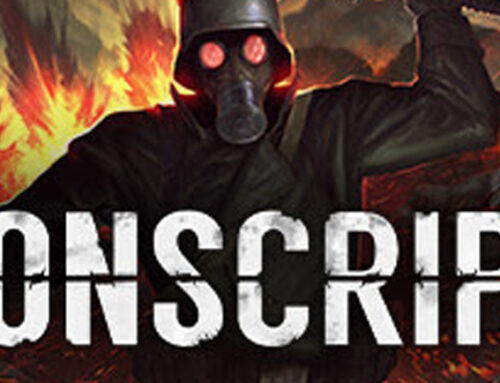The immersive and multifaceted nature of video games extends far beyond entertainment, often serving as fertile ground for exploring complex narratives, ethical dilemmas, and societal themes. Engaging with these digital worlds can spark creativity and offer fresh perspectives for crafting thought-provoking essays. Let’s delve into five distinct games that can serve as wellsprings of inspiration for academic writing.
1. Outer Wilds
“Outer Wilds” presents an awe-inspiring exploration of space, time, and the interconnectedness of the universe. Its time-loop mechanic offers a philosophical playground ripe for essay topics:
Philosophy of Time and Space: Delve into the game’s cyclical nature, reflecting on the existential implications of time loops and the transient nature of existence. Consider discussing the concept of determinism versus free will within the context of the game’s narrative.
Environmentalism and Cosmic Exploration: Analyze the game’s emphasis on environmental storytelling, discussing how it intertwines with the vastness of space exploration. Consider exploring themes of interconnectedness, the fragility of ecosystems, and the exploration of unknown frontiers.
2. Disco Elysium
In “Disco Elysium,” the narrative unfurls in a dystopian world, challenging players with intricate choices and philosophical introspection. Its deep psychological themes inspire multifaceted essay topics:
Psychology and Identity: Explore the protagonist’s fragmented psyche and the exploration of identity, mental health, and the quest for self-discovery within the game’s narrative. Delve into the impact of trauma, the nature of personality, and the quest for redemption.
Sociopolitical Commentary: Discuss the game’s portrayal of societal issues, political ideologies, and the implications of a society in decay on its inhabitants. Analyze how the game presents different political systems and their effects on individual agency and societal structures.
3. Inside
“Inside” crafts a hauntingly atmospheric world ripe for interpretation and analysis. Its enigmatic storytelling and symbolism prompt introspection on various essay-worthy topics:
Dystopian Narratives: Analyze the bleak, atmospheric setting and the game’s use of symbolism to comment on societal control, individual autonomy, and the human condition. Consider exploring the nature of authority, surveillance, and the loss of personal agency.
The Ambiguity of Storytelling: Delve into the game’s minimalistic narrative approach, examining how ambiguity serves to engage players’ imaginations and evoke emotional responses. Discuss the effectiveness of storytelling through visual cues and environmental storytelling without explicit exposition.
4. Hades
“Hades” weaves a captivating tale within the confines of Greek mythology, intertwining narrative depth and player agency. It offers thought-provoking essay topics like:
Mythology and Modern Interpretation: Explore the reinterpretation of classical mythology, focusing on themes of family dynamics, destiny, rebellion, and personal growth within a contemporary context. Analyze how the game reimagines traditional myths and characters.
Character Development and Relationships: Analyze the depth of character relationships and the impact of player choices on narrative outcomes. Explore how player agency shapes the storytelling experience and the evolution of character arcs based on player decisions.
5. Oxenfree
“Oxenfree” ventures into supernatural mystery, engaging players with a narrative punctuated by choices and consequences. Its themes provide fodder for diverse essay explorations:
Narrative Choices and Consequences: Explore the implications of player choices on the storyline, analyzing the game’s branching narrative structure and its impact on character development. Discuss how these choices create divergent storylines.
Communication and Storytelling: Examine the game’s emphasis on dialogue and communication, exploring how these elements shape the narrative and foster player engagement. Discuss how the game uses interactivity and conversation mechanics to drive the plot.
Critical Analysis of Themes
Dive deep into the thematic layers presented within these games. In “Disco Elysium,” explore the impact of choices on the protagonist’s psyche and how the game addresses existential themes. Analyze the motifs of freedom, control, and existential dread in “Inside” through its visual storytelling.
Interpretation of Narrative Techniques
Examine the storytelling methods employed in these games. For “Hades,” analyze how the game intertwines mythology with gameplay mechanics to create a compelling narrative. Explore the use of silence, dialogue, and player-driven storytelling in “Oxenfree.”
Engagement with Interactive Elements
Consider the impact of interactivity and gameplay mechanics on thematic depth and emotional resonance. Using “Outer Wilds,” discuss how the time loop mechanic enhances the exploration of philosophical themes. Analyze the impact of player agency and dialogue choices on character relationships in “Disco Elysium.”
Enhancing Academic Pursuits with Writing Services
To fully leverage the insights gleaned from the gaming world, consider supplementing your efforts with professional writing services such as writepaperfor.me. These services can provide valuable guidance in structuring your thoughts and refining your arguments, ensuring a well-rounded and impactful essay.
Conclusion
These five games offer rich narratives, thematic depth, and thought-provoking experiences that can elevate academic writing. By immersing in their intricacies, students can unearth profound themes, diverse storytelling techniques, and unique perspectives to infuse into their essays, transcending conventional boundaries and offering fresh insights.
While gaming experiences significantly enrich academic writing, seeking professional writing services where students can pay experts to write essays, using expert guidance and editing support can further enhance your essays, ensuring a well-crafted and polished final product.
Through critical analysis and interpretation, these gaming experiences can serve as catalysts for fostering originality, creativity, and depth in academic writing, providing a bridge between digital experiences and scholarly discourse.







